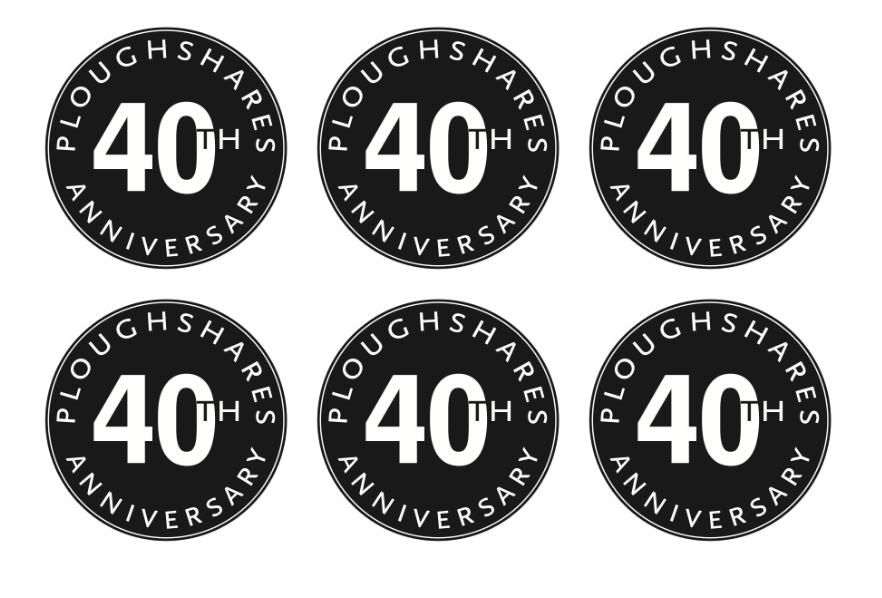40th Anniversary Interview with DeWitt Henry

In honor of our 40th anniversary, the guest editor of our commemorative Summer 2011 issue, DeWitt Henry, answered a few questions about the past, present, and future of our beloved literary magazine. To read more about the 4oth anniversary and upcoming events, read the partner to this interview post, here.
Ploughshares: I know this is something you get asked about a lot, but what can you tell me about the founding of Ploughshares? What was the time like and who was around? Was there a sense of “need” at the time to create this kind of magazine?
DeWitt Henry: As I wrote in my personal manifesto (“Public Publishing in Boston,” Antioch Review, Fall 1980):
“There was a culture shock in leaving the small-pond, privileged setting [of Amherst College] and finding myself, as a graduate student [at Harvard] in the early sixties. Later I was at the Writers’ Workshop at Iowa for two years, and then returned to Cambridge and taught fiction sections while finishing my doctorate, and could not find a job, and was drinking in a bar with several other published and unpublished writers, who were complaining, in 1970, that there was no outlet in Boston, no attractive, energetic, caring, discriminating magazine, and hadn’t been one for ten years. (The bar was Irish, and our main reason for drinking there was the presence of Peter O’Malley, a young Dubliner wise in the traditions both of the literary pub and of the Irish Literary Revival and its aggressive struggle for community.) And in a very small way, having first considered doing a broadsheet, we decided to do a magazine; O’Malley raised the initial $2,000 to print it, we hung up a shingle, and promptly 600 or so manuscripts came in.”
On the occasion of our 100th issue, I toasted us all:
“From the beginning, I never thought Ploughshares would last, but the guest editors and writers who joined us kept us all believing, sacrificing, and working for the collective mission. We set out to discover new writers and artists, to challenge the status quo, and to advocate for writers who inspired us. Over time this mission has passed from one literary generation to the next. In addition to fresh talent, and to the dedication of editor Don Lee (beginning more than 40 issues ago), Ploughshares has been supported by Emerson College, government agencies, private foundations, individual donors, gifted staff, and countless interns and volunteers. …I am proud of my place in the founding generation, alongside Peter O’Malley, and figures such as James Randall, Ellen Wilbur, Frank Bidart, Joyce Peseroff, Gail Mazur, Lloyd Schwartz, Seamus Heaney, and James Alan McPherson; and I am proud of and humbled by the work since then…My toast: to the past, the present, the future, and to the Idea of Necessary Art!”
Ploughshares: How has Ploughshares changed (in your view) since it was founded? What are your thoughts on the progression and where it was then as compared to where it is now?
DeWitt Henry: In my view, the Boston of 1971 was indifferent to new writers, to diverse voices, and to literary publishing, generally. There were few readings. Writers on different campuses barely knew and read each other. The reigning Establishment consisted of the Atlantic Monthly, Houghton Mifflin, and the Globe; and there was a divide not only between generations, but between people who were paid for writing and people who weren’t.
By contrast, the Boston of 2011 is one of the liveliest literary communities in the world, from the Globe and Phoenix, to Grub Street, to MFA programs at Emerson, Lesley, Suffolk, U. Mass. Boston, and the MA at BU, to Boston Public Library programing, to festivals in Copley Square and Somerville, to magazines, Ploughshares, Agni, Post Road, to PEN New England, to bookstores such as Grolier, Newtonville Books, Back Pages, Harvard Bookstore, Brookline Booksmith, Porter Square Books and on. Some years ago, Dan Wakefield commented that there were more readings per square inch in Boston than anywhere else. Related to this change is the wider understanding of literary publishing. Most readers and book people now at least know, understand and value what a “literary magazine” IS.
From the outset, the mission of Ploughshares was to help cultivate this community – and indeed, the very idea of “literary community” here and elsewhere, what Jim McPherson would call a “numina.” After Peter O’Malley and I became co-directors, and given lively disagreements among the founding writers, we adopted the idea of a revolving editorship, where each writer would take a turn editing an issue. For my part, it was a profound idea, rooted in my Amherst background and I suppose the tradition of “practical criticism” (I.A. Richards, F.R. Leavis, and company). I credit our example with the current practice of Houghton-Mifflin’s “Best Of” series. It was a good idea; the idea of debate through the supporting evidence of sensibility. Success in our sense was aesthetic, from issue to issue, from poem and story to poem and story. We got reviewed. We got grants. We won awards. Each next issue became miraculously possible both in the richness of available work, in grant support, and our resourcefulness and determination in finding readers.
Throughout these years, we also gravitated towards unifying topics for various issues. I think of such milestones as “International Writing,” “Southern Writing,” or Lenny Michaels’s interrogation of “What is a story” (no question mark intended). I think also of milestones in design, particularly that of Frank Bidart’s 1975 issue: changes in type face and layout; and, since our primary distribution was in retail sales, of our first four-color covers.
As I became more involved with teaching and in chairing the writing department at Emerson College (In 1983, Emerson became a partial sponsor of the magazine), my protégé (and Emerson’s first MFA in Creative Writing) Don Lee took over; and with the additional support of major grants from the Lila Wallace Foundation, he doubled our circulation and continued to build the magazine’s prominence and prestige. Fifteen years later, to our collective credit – the College’s, the staff’s, and all the writers who had helped to build the magazine and carry it forward – we found Ladette Randolph. A wonderful novelist and former director of the University of Nebraska Press, she has taken the magazine and its idea (after another facelift and tweaks in format) into its third generation.
Ploughshares: What do you see as the main difference between being a writer and an editor? Are there things that you enjoy about both?
I have always viewed editing as expressive, as if I were a collagist or a quotationist like Charles Ives. I want to build an original whole greater than the sum of its parts. In my own writing, on the other hand—whether fiction or memoir – I am imagining the parts, as well as how they work together. Both writing and editing, as I regard them, require vision; a sense of soul, of curiosity, and of deep, personal stakes in responding to life.
At worst, of course, an editor is a dilettante: someone who cuts her or his taste to the fashion of times; who, like a buyer for chain stores, chooses knock-offs and look-alikes and what he or she thinks others will like, rather than what they should like. This is especially true of cultural magazines, like the New Yorker or Atlantic, with market surveys, advertisers, and rating systems, but it also true of many single-editor literary magazines. Original editors lead and teach taste, as do original writers. The issue is beyond self-serving; it is vision-serving, and this was what we regularly expected of the writers that we asked to guest-edit: to bring the authority of making to their choosing; “to teach the taste by which they were to be appreciated.” Our best writer-editors introduce readers to their personal cultures.
I love as a writer (and as a teacher) setting provocative agendas, and having other writers set them for me. My own two favorite Ploughshares issues are probably the early “Realism” issue (2/2) and “Confronting Racial Difference” (16/2&3). But my best book, in this sense, is the Beacon Press anthology, Sorrow’s Company: Writers on Loss on Grief (2001), a response to my own grief for the loss of my parents and nephew, but more so to what I felt to be a society that resisted or denied expressions of grief. I see it as exploring as much what I have to say as I do my novel or my memoirs.
In writing, there’s the joy of getting something right, of capturing experience. In editing, there’s the shock of recognition, of witness. I remember writing Ray Carver, when I first read “A Small, Good Thing” in manuscript for Donald Hall’s Ploughshares issue (1982), that he had said it all; that now I needn’t write about the passage of attending my young daughter through her hospitalization for a life-threatening heart virus.
Ploughshares: What is your personal process as a guest editor for Ploughshares? Does it change from issue to issue/ time to time? Is there anything in particular that you were thinking for this issue – since it is the 40th?
DeWitt Henry: I wanted this issue to celebrate its occasion. I wanted to bring together our amazing roster of former guest editors and to underscore the collective spirit of the magazine. There has always been a cathedral aspect to Ploughshares, in that it has been an ongoing creation of many talents, many hands, many lives. There has been a generosity of spirit. Writers growing in their own careers helped it to make it happen and to keep happening – for the good, I would say, of a better world, literary and otherwise.
I sent out an invitation to former guest editors asking them either for new work of their own, or an account of turning points in their careers, or the introduction of an emerging writer, whose work they might wish to sponsor. I thought that this would capture the spirit of the magazine and its solidarity of urgency and purpose. Twenty-five writers responded, six of them as sponsors of young writers. As I state in my introduction, “Long-time Ploughshares readers will recognize the joining of their talents as a reunion. To readers new to Ploughshares, they offer a variety of subjects, forms, and styles, as well a collective conviction in the possibilities of literature.”
Ploughshares: What are your plans for the future in your own writing/career? Do you have any hopes for Ploughshares in the future?
DeWitt Henry: As a reader, I hope to keep being challenged, surprised, and learning from issues of Ploughshares, as I have most recently from Colm Toibin’s fiction issue (which of course led to me to his own recent collection, The Empty Family). I hope that in addition to its poetry, fiction, and memoir that Ploughshares continues to include suggestive, writerly criticism. I hope that the “family” of former guest editors feels vested in sending their own work, in suggesting new writers, and in offering interviews, rediscovery and focus essays on careers, and reviews. I hope that readers and former editors will respond to works in the magazine on our blog. I hope that we do, in fact, consolidate and grow as a community, whose common denominator, despite individual stages of profile or career, is the seriousness of our art. Ladette has already expanded that community. She has enhanced our digital presence, brought guest editors to public venues in Boston and presented them in streaming video on line, made full use of Emerson facilities, secured new patronage, initiated an annual discovery contest, and committed recently to an online review section—among other advances—but my long term hope remains that the idea of Ploughshares Books may be revived. I would like us to participate in trade publishing, with a prestige press or imprint comparable to New Directions, Paris Review Books, Tin House Books, and others that make use of the literary magazine base and develop projects as outgrowths of the magazine and its writers. I also love and envy New York Review of Books’ new series of putting neglected classics back in print; and Dzanc Press’s initiative in putting significant newer writers back into e-book print.
As for me, I mean to retire from teaching within the next few years and to write full time, although I would hope to keep in touch with students through part-time teaching at Emerson. I hope to publish a third memoir, a second novel, a collection of stories, and a collection of literary essays. Health permitting, I also expect to travel, and to keep up with and grow through the adventures of my children and grandchildren.
Be sure to check back on the blog and on our Facebook and Twitter pages for follow up info on our continuing anniversary celebration including a reception to honor DeWitt Henry and his contributions to the magazine and a fundraiser for the Alice Hoffman issue.



